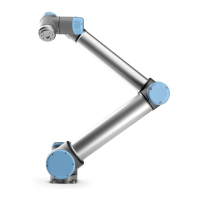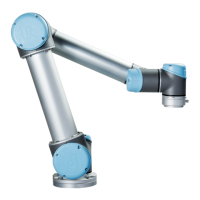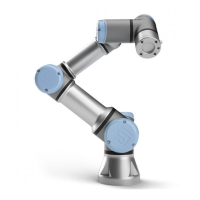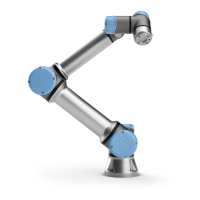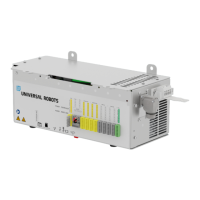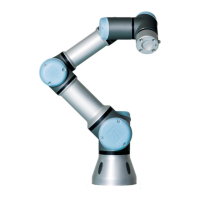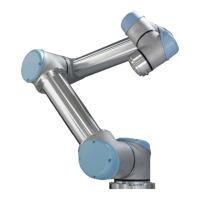1.16. Applied Standards
This section describes relevant standards applied under the development of the robot arm and
control box. A European Directive number appearing in brackets indicates the standard is
harmonized according to that Directive.
A standard is not a law, but a document developed by stakeholders within a given industry.
Standards define the normal safety and performance requirements for a product or product
group.
The abbreviations in this document mean the following:
ISO International Standardization Organization
IEC International Electrotechnical Commission
EN European Norm
TS Technical Specification
TR Technical Report
ANSI American National Standards Institute
RIA Robotic Industries Association
CSA Canadian Standards Association
Conformity with the following standards is only guaranteed if all assembly instructions, safety
instructions and guidance in this manual are followed.
ISO 13849-1:2006 [PLd]
ISO 13849-1:2015 [PLd]
ISO 13849-2:2012
EN ISO 13849-1:2008 (E) [PLd – 2006/42/EC]
EN ISO 13849-2:2012 (E) (2006/42/EC)
Safety of machinery – Safety-related parts of control systems
Part 1: General principles for design
Part 2: Validation
The safety control system is designed as Performance Level d (PLd) according to the
requirements of these standards.
ISO 13850:2006 [Stop Category 1]
ISO 13850:2015 [Stop Category 1]
EN ISO 13850:2008 (E) [Stop Category 1 - 2006/42/EC]
EN ISO 13850:2015 [Stop Category 1 - 2006/42/EC]
Safety of machinery – Emergency stop – Principles for design
The emergency stop function is designed as a Stop Category 1 according to this standard. Stop
Category 1 is a controlled stop with power to the motors to achieve the stop and then removal of
power when the stop is achieved.
User Manual 69 UR10
Copyright © 2009–2020 by UniversalRobotsA/S. All rights reserved.
